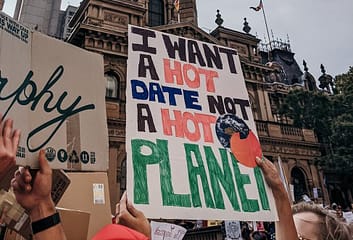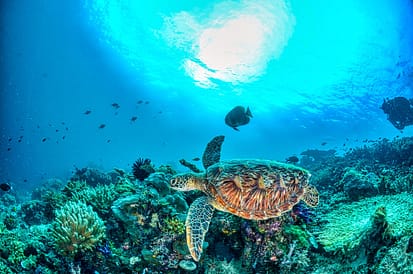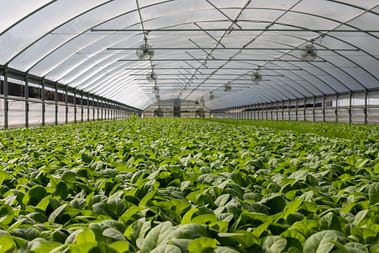
I’m not sure which phrase is more loathed, Climate Change or Brexit. I do know, however, which is the more pressing matter of the two.
Before we get ahead of ourselves, though, let us first hold a minute’s silence for the wazzocks who continue to deny, through both ignorance and self-interest, the irrefutable evidence that we humans are causing this natural phenomenon’s rapid acceleration…
.. May they find kinship and comfort in those who believe that the earth is flat, that Michael Jackson didn’t have facelifts and that banoffee pie isn’t the king of desserts. Amen.
What Is Climate Change?
Disclaimer: If you’d like to avoid the following basic, under-qualified depiction, feel free to skip this part. Otherwise, prepare to be patronised…

Climate Change is the natural, long-term cycle of fluctuation in a planet’s average temperatures and weather patterns. On Earth it’s a process that, historically, takes place naturally over tens, if not hundreds, of thousands of years.
As part of this process, not only does the geography of the planet alter but its inhabitants evolve, exist and die out at a rate relative to these changes (about one extinction per every million species, per year).
Crucially, these naturally slow changes give life the chance to adapt and evolve in tandem with its respective surroundings. Consequentially, pre-human activity, levels of biodiversity tended to follow an upward trend. This has resulted in an estimated 8-10 million individual species on our planet!
Why Does This Happen?
Well, essentially, our planet is a giant greenhouse. With that in mind, just as the glass panes of a greenhouse regulate the temperature inside, so the greenhouse gases in the atmosphere surrounding the planet regulate the temperature below.
They do this by trapping some heat from the sun while, importantly, allowing much of it to bounce back and dissipate into space. Thus a stable, temperate climate is established and life can flourish… or in the case of your greenhouse, your cucumbers can flourish.

On that theme, the thicker the glass of your greenhouse, the more heat it will invariably trap. While this ‘thickness’ increases and decreases naturally, if you break the cycle by continually adding to it, soon enough, your cucumbers will burn.
Therein lies our problem. We’re burning our cucumbers.
Now, the earth’s greenhouse gases only make up about 1% of the overall atmosphere and they consist primarily, though not exclusively, of water vapour, nitrous oxide, ozone, methane and more pressingly, carbon dioxide.
While this amount seems small, it doesn’t take much to tip the scales and cause wholesale changes. That, unfortunately, is where we come in.
What Are We Doing Wrong?

Since we first started burning fossil fuels, en masse, around 170 years ago during the Industrial Revolution (though our burgeoning consumption of fossil fuels can be traced back slightly earlier), we’ve contributed, increasingly, to the amount of carbon dioxide in the atmosphere, rapidly thickening our glass and accelerating the natural climate change cycle to an untenable level.
To compound this, we’re also burning and clearing one of our greatest safety nets – the world’s forests. Collectively they’ve hoovered up nearly a third of our carbon emissions and yet we’re clearing them at such a rate, that by 2030, we might have only 10% left.
It’s a bit like being a passive smoker but lighting the cigarette for the person doing the smoking.
Why Should We Care?

Well, it affects us all. Global temperatures have already risen by 1-degree centigrade (at the time of writing) and continue to rise exponentially. While this might not seem like much, when you consider that the twenty hottest years on record have all come in the last twenty-two, a worrying pattern starts to unfurl.
Continue on this upward trajectory (1.5 degrees by 2040-50 and between 3 and 6 by the end of the century) and not only will I have to up my sun cream from factor 50 to a NASA spacesuit but sea levels will rise and food will become scarce due to increasingly severe weather events.
What’s more, this increasing pace of change has already rendered life unable to adapt quickly enough and as a result, extinction rates have ballooned from the aforementioned 1 species per million, per year, to between 100 and 1000. Keep on at this rate and we can also count ourselves as part of that statistic.
Just as with plastic, the prognosis is pretty bleak but only if we do nothing about it… so let’s do something.
What Needs To Happen?

In short, the world needs to commit to reducing carbon (and some other) emissions and limiting global temperature rises to 1.5 degrees centigrade.
During the 2015 UN Climate Summit in Paris, the world did agree to hold temperature rises below 2 degrees and to reduce carbon emissions to zero by 2050, but you can count on one hand the countries that are sticking to it.
Loopholes are found, governments drag their feet and the super-rich fossil fuel companies sow doubt and stifle progress at every opportunity. To this day only 30% of the UK’s energy is renewable. It’s the great irony of the situation.
We have the ability to change but lack the will to do so; people value money over all else. Yet, the price of action is dwarfed by the price of inaction.
What Can I Do?
Well, let’s use the UK as a case study. Currently, the average person in the UK has an annual carbon footprint of 13 tonnes. It’s a stunning contribution due in no small part to the fact that our entire society is built on unsustainable energy.
From the cuppa you make in the morning to the car you drive to work and the knickers you (hopefully) pull on before you do anything else, all utilise unsustainable energy somewhere along the way. It is the price of modern life… but it doesn’t have to be.
If we follow three simple steps, we can quite easily cut two tonnes off that total, and that’s just the beginning!

Step 1. Eat everything you buy.
The developed world is a wasteful one and binning food not only means that the carbon used in its production is going to waste, but it also means we need to unnecessarily create more.
On top of that, decomposing food releases methane, another one of those pesky greenhouse gases! So gobble all your food, don’t overbuy and pre-prepare!

Step 2. Avoid air-freighted food
Eating food that has been transported by aeroplane has a carbon footprint one hundred times greater than that brought via ship. You can usually identify air freight by the little aeroplane symbol and/or the words ‘Air Freight’ or ‘Flown’ on the packaging. You could, however, cut out the middleman and shop locally!

Step 3. Reduce your meat and dairy intake
This particularly goes for beef and lamb, as they pass more wind (methane) than your Aunty Nora! There’s much reluctance to change where diet is concerned but changing your diet to a planet-friendly one doesn’t mean cutting out all meat altogether.
It’s much simpler than you might think. Love bolognese? Swap the mince for lentils. Love stew? Try swapping the stewing steak for beans and sweet potato. Have a look at this planetary diet to see what you think. It might seem slightly daunting but don’t be perturbed – it’s all about moderation really!
To Summarise
Ultimately there are many, many steps you can take to reduce your carbon footprint without greatly changing your lifestyle. It’s the knowing and the doing that’s key.
“Every one of us has the power to make changes and to make them now.”
– David Attenborough, Climate Change: The Facts (2019)
It’s my aim, therefore, to point you in the right direction. However, as this site’s very much a work-in-progress (no, really!), for now, you’ll just find a couple of links below to help get you started.
“For it is the small gestures, as well as the large, that will ultimately change the world…”
– That one was me… can’t wait for my OBE!
All the best!


